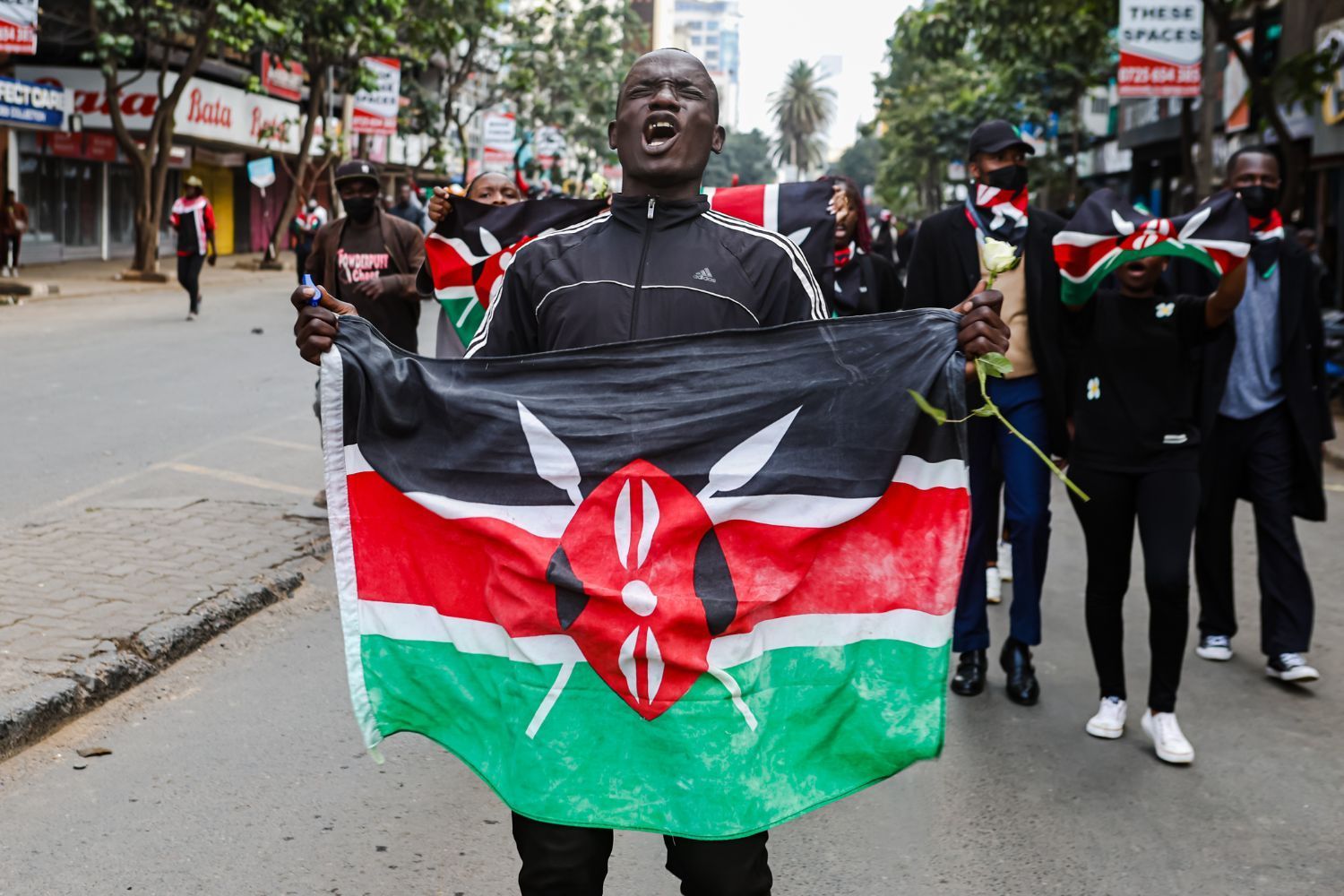Op-Ed: As Kenya Protested in the Streets, Faith Kipyegon Ran for History
In two days that gripped the nation, Kenyans confronted power at home while chasing possibility abroad.
This week, Kenya lived through two distinct yet deeply connected moments: one unfolded in the streets under clouds of tear gas, while the other played out on a track in Paris.
On Wednesday, June 25, citizens came out across Kenyan cities to commemorate one year since protesters stormed Parliament and to honor the lives lost in previous anti-government demonstrations. On Thursday, June 26, Kenyans and the world watched as Olympian and world record holder Faith Kipyegon pursued a record no woman had ever broken. The contrast was stark, but the undercurrent was shared. Both events were driven by a refusal to accept limits and a belief in something better.
The protests marked one of Kenya's most forceful displays of civic unrest, spreading across nearly half of the country's 47 counties. Demonstrators voiced growing outrage over police brutality, government excess, and a deepening economic burden.
"[It is] more than just a protest moment. It's an awakening to the reality that our generation must become the builders and the architects of a new republic," Shawn Dalmas told OkayAfrica in an interview about the Gen Z mindset and the evolving Kenyan psyche. "Because if we do not stand up for what we want and say no to what we do not want, the current government is going to run us to the ground."
This sentiment came alive in the streets as chants of 'Ruto must go' echoed and protesters waved Kenyan flags. In response, the government met them with live ammunition, rubber bullets, and tear gas.
Protesters disperse after teargas canisters were thrown at them during the protest in Nairobi to mark one year since the anti-tax demonstrations and to commemorate those who lost their lives on 25th June 2024.
By yesterday morning, Thursday, June 26, the consequences were clear. Amnesty Kenya reported at least 16 people killed, most from gunshot wounds. More than 400 were injured, with over 80 in serious condition. The government attempted to suppress coverage by banning live television and radio broadcasts of the events. Telegram was restricted, and many Kenyans relied on social media to stay informed.
Just hours after the worst of the chaos, Kipyegon stepped onto the track at Stade Charléty to attempt the first sub-four-minute mile in women's history. Nike branded the event 'Breaking4.' It was a nod to its 'Breaking2' campaign, which supported Eliud Kipchoge's historic 2017 attempt to run a marathon in under two hours. The Nike-created slogan for Kipyegon's night was a feather in its marketing cap: "It's not if, it's when."
Faith ran a 4:06.42, the fastest time ever recorded by a woman over the distance. It was faster than her previous best, but she did not break the four-minute mark. She finished exhausted yet happy, meeting her mentor, Kipchoge, at the finish line.
"I've proven that it's possible," she said once done. "If it's not me, it will be somebody else. One day, a woman will run under four."
Her run captured global attention and, for many Kenyans, offered a moment of inspiration during a heavy week. Yet it did not feel like escapism but more like a parallel pursuit. In one case, a runner attempted to push the limits of human ability. On the other hand, a generation tried to broaden the possibilities for their country.
These events are not as disconnected as they seem. They represent different responses to the same desire: to reject the boundaries set for you. Whether confronting state violence or defying world records, Kenyans this week were united in their refusal to accept limitations.
The images from both days are vivid. A runner collapsing on the track, having given everything she had. Protesters collapsing under tear gas, still clutching flags and homemade signs. Both scenes carry pain but also promise.
There is something deeply Kenyan — and African — in this duality. A country can hurt and still inspire. It can bleed and start again. And it's important to remember that the same soil that nurtured Faith nurtured the youth who marched this week. Many watched Kipyegon's attempt and thought to themselves, "It's not if. It's when."
- Faith Kipyegon Runs Fastest Women's Time in Her Attempt to Break Four-Minute Mile ›
- Faith Kipyegon Runs to Raise Awareness for Postpartum Hemorrhage ›
- Faith Kipyegon Is Ready to Give It Her All: “This Will Cement My Legacy” ›
- Unstoppable Faith Kipyegon Aims for Olympic Gold Three-Peat ›
- A Year Later, Kenya’s Youth Are Still Protesting ›
- How Kendrick Lamar is Soundtracking Kenya’s Anti-Finance Bill Protests ›
- Fueled by Protests, Kenyan Developers Innovate Tech to Support Movement ›
- Protests Against Cost of Living Turn Deadly in Kenya; Opposition Vows to Continue Demonstrations ›
- Kenyan Parliament Passes Controversial Finance Bill as Protests Turn Deadly ›
- Africa Update July 7: SA Top Cop, Kenya Protests,Trump BRICS | OkayAfrica ›
